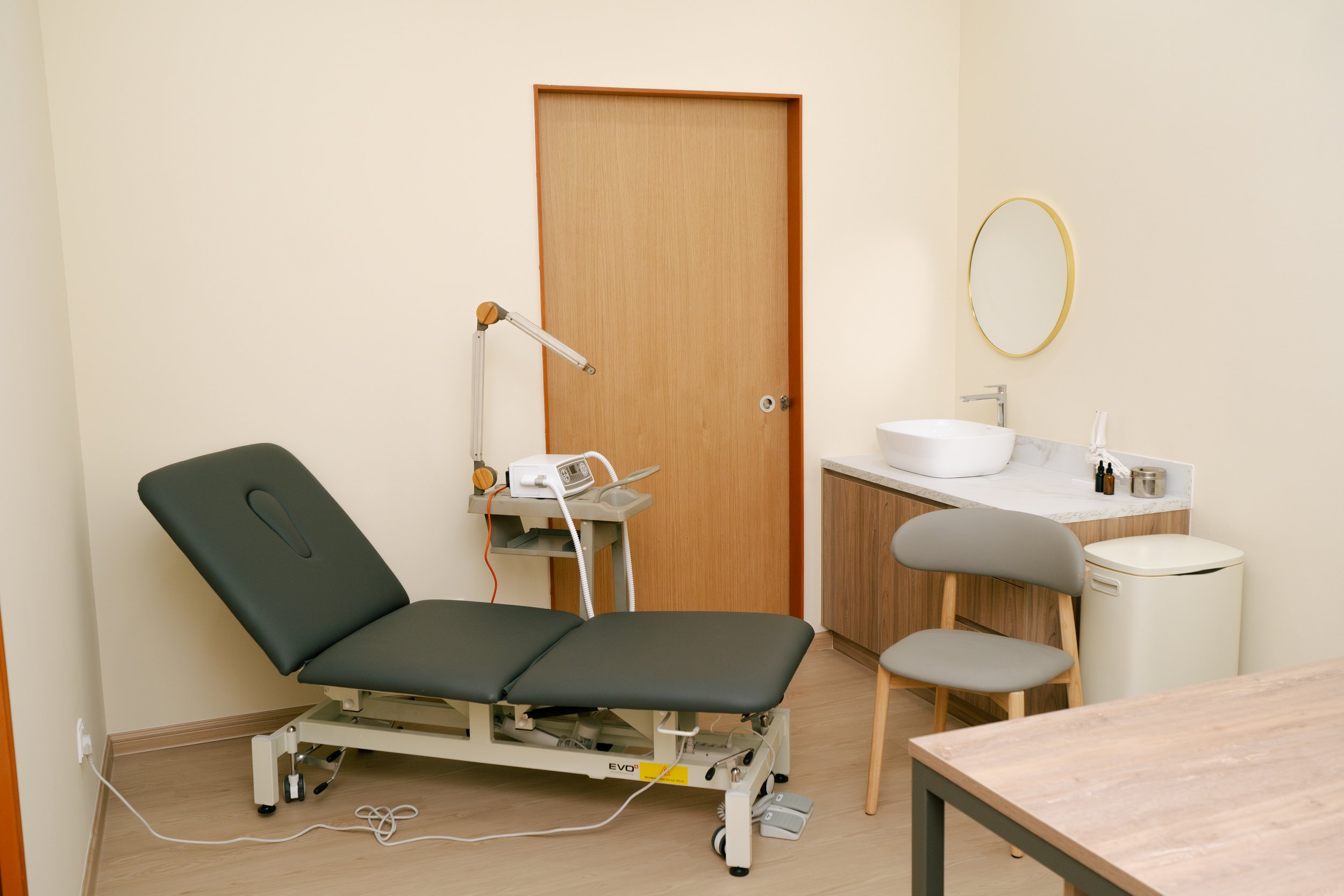
Plantar Fasciitis
What Is Plantar Fasciitis?
Plantar fasciitis is one of the most common causes of heel pain. It occurs when the plantar fascia—a thick band of tissue connecting your heel to your toes—becomes inflamed. This inflammation often causes stabbing or aching pain, especially with your first steps in the morning or after resting. If you require a consult, do book an appointment with us as we specialize in plantar fasciitis treatment.
Common Causes
Plantar fasciitis usually develops from repetitive strain or overuse of the plantar fascia. Some common risk factors include:
Sudden increases in physical activity or training
Standing or walking for long hours on hard surfaces
Wearing unsupportive footwear (e.g., slippers, flat sandals)
Flat feet, high arches, or poor foot biomechanics
Tight calf muscles or limited ankle mobility
Weight gain or a sedentary lifestyle
Jobs that involve prolonged standing
Age-related tissue degeneration
Overpronation or abnormal gait patterns
Signs & Symptoms
People with plantar fasciitis may experience:
Sharp or burning pain under the heel
Pain when taking your first steps in the morning
Discomfort after rest or prolonged sitting
Tenderness when pressing the heel or arch
Increased pain after intense activity
Swelling, tightness, or a “bruised” feeling in the heel
Difficulty walking barefoot on hard floors
How Plantar Fasciitis Is Diagnosed
Our podiatrists can usually diagnose plantar fasciitis based on your symptoms and a physical examination. This may include:
Assessing your foot posture and alignment
Testing joint mobility and muscle strength
Evaluating gait and pressure via video gait analysis
Reviewing footwear and activity habits
We may also refer you for diagnostic ultrasound to evaluate tissue damage, especially in severe or chronic cases.
Treatment Options
When treating plantar fasciitis at KL Foot Specialist Podiatry, we offer comprehensive treatment plans tailored to each individual. Your treatment may include:
Custom Orthotics: To correct foot mechanics and offload pressure from the plantar fascia.
DolorClast® Shockwave Therapy: Uses acoustic energy to reduce pain and stimulate tissue repair.
DolorClast® High Power Laser Therapy: Non-invasive light therapy to enhance healing and reduce inflammation.
Foot & Ankle Taping: Temporarily supports the fascia and reduces strain.
Stretching & Strengthening Program: Exercises to improve lower limb mobility and load capacity.
Footwear Guidance: Advice on choosing supportive shoes suited to your lifestyle.
Self-Care & Prevention Tips
You can also take the following steps at home to support recovery:
Wear supportive shoes at all times—avoid going barefoot
Stretch your calves and plantar fascia daily
Ice your heel (15 minutes) after activity or when swollen
Avoid walking long distances without proper footwear
Roll your arch over a frozen water bottle for self-massage
Start your morning with toe flexing or alphabet writing exercises with your foot
Avoid flat sandals or old, worn-out shoes
What Happens if Left Untreated?
When plantar fasciitis is not treated, it can lead to worsening inflammation, chronic degeneration, or even a ruptured fascia—which often requires immobilisation in a moon boot or extended rest. The longer you leave it, the longer it takes to heal.
When to See a Podiatrist
If your heel pain (plantar fasciitis) lasts more than two weeks, interferes with your daily activities, or keeps returning, it’s time to see a podiatrist. Early treatment prevents the condition from becoming chronic and speeds up recovery.
-
Treatment may include custom orthotics, DolorClast® shockwave or laser therapy, stretching programs, and footwear adjustments depending on the severity.
-
Shoes with firm arch support, cushioned soles, and a slight heel lift reduce strain on the plantar fascia.
-
The cost can vary depending on the treatment method, such as orthotics or DolorClast® Shockwave Therapy. We offer customised plans—please contact our clinic for pricing
-
KL Foot Specialist provides podiatry-led treatment for plantar fasciitis at our clinic in Kuala Lumpur. Book a consultation to get a personalised recovery plan.
-
With proper treatment, most people improve within 6–8 weeks. Chronic cases may take several months.
-
Yes, but stick to low-impact activities like swimming or cycling and avoid running until symptoms improve.
Frequently Asked Questions
Book Your Heel Pain Assessment Today
KL Foot Specialist Podiatry offers expert, evidence-based care for plantar fasciitis right here in Kuala Lumpur. Contact us today to start your recovery journey.

